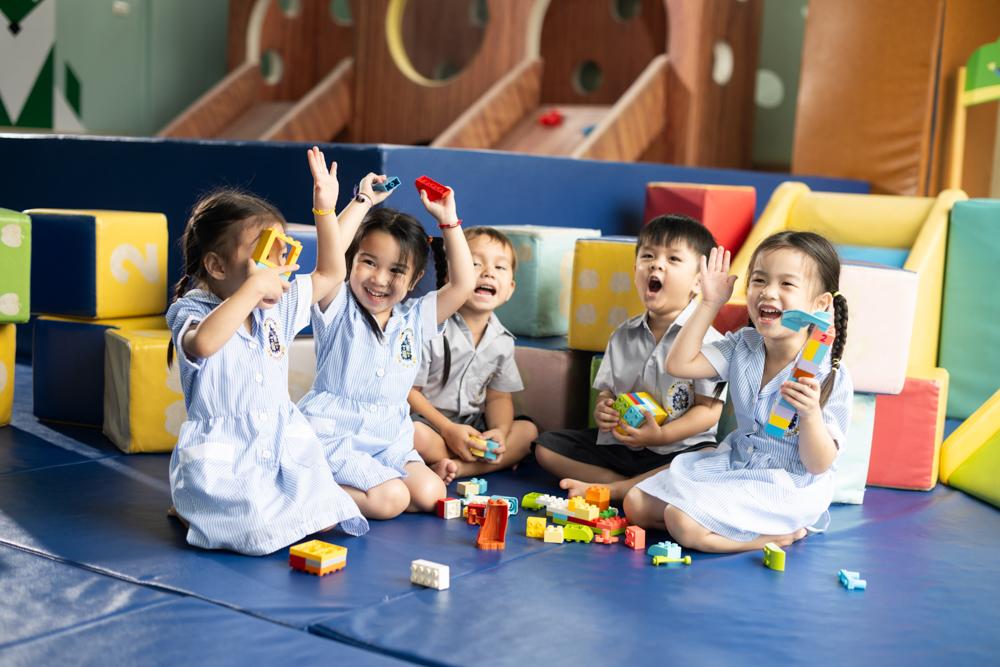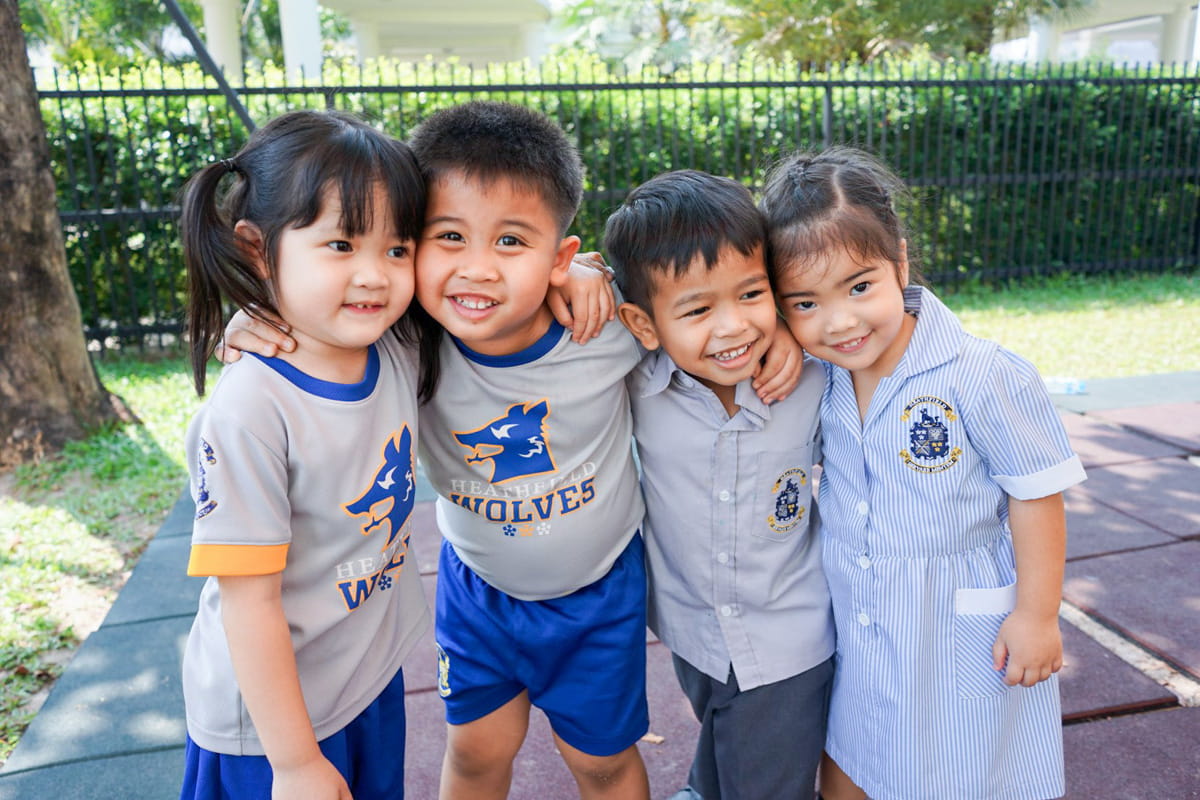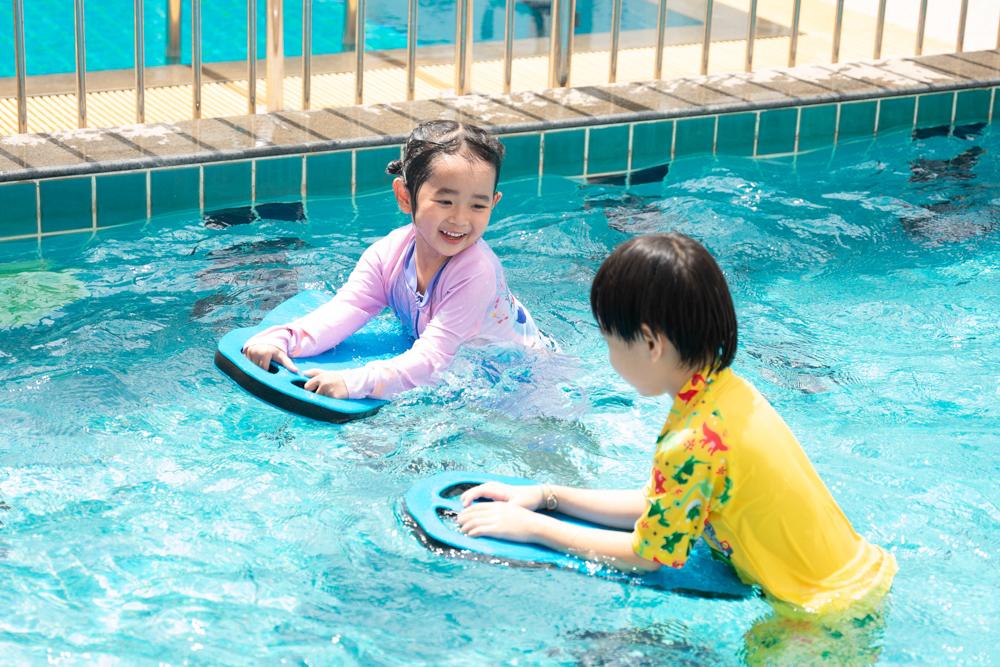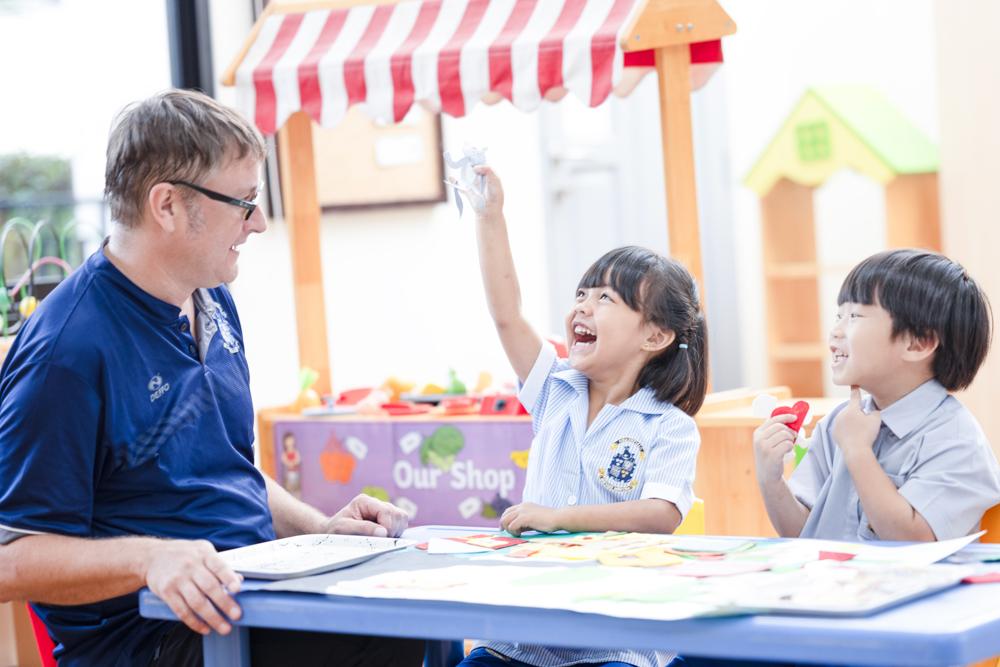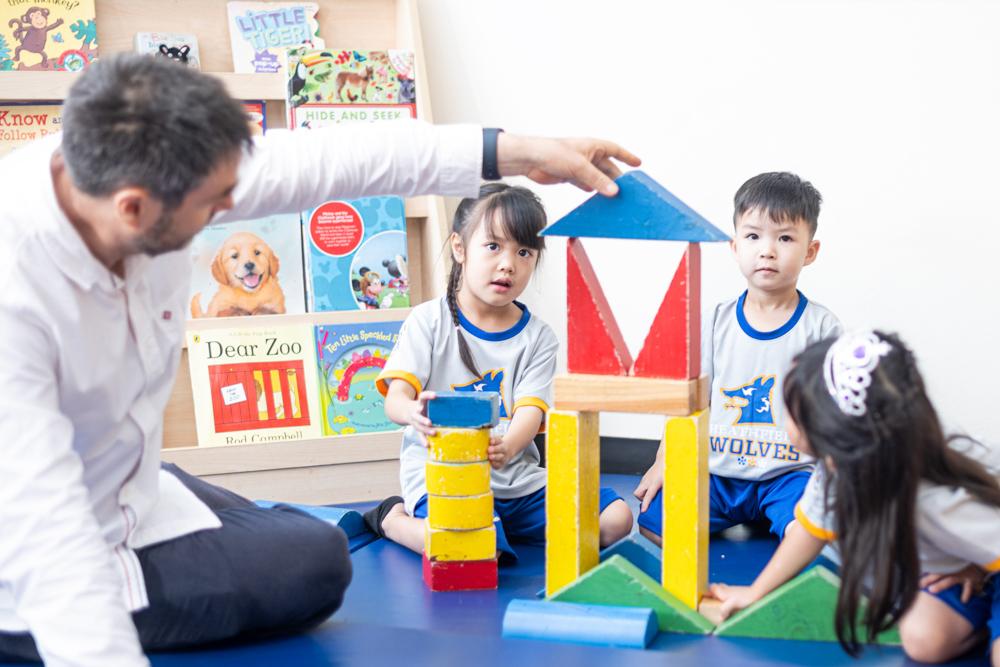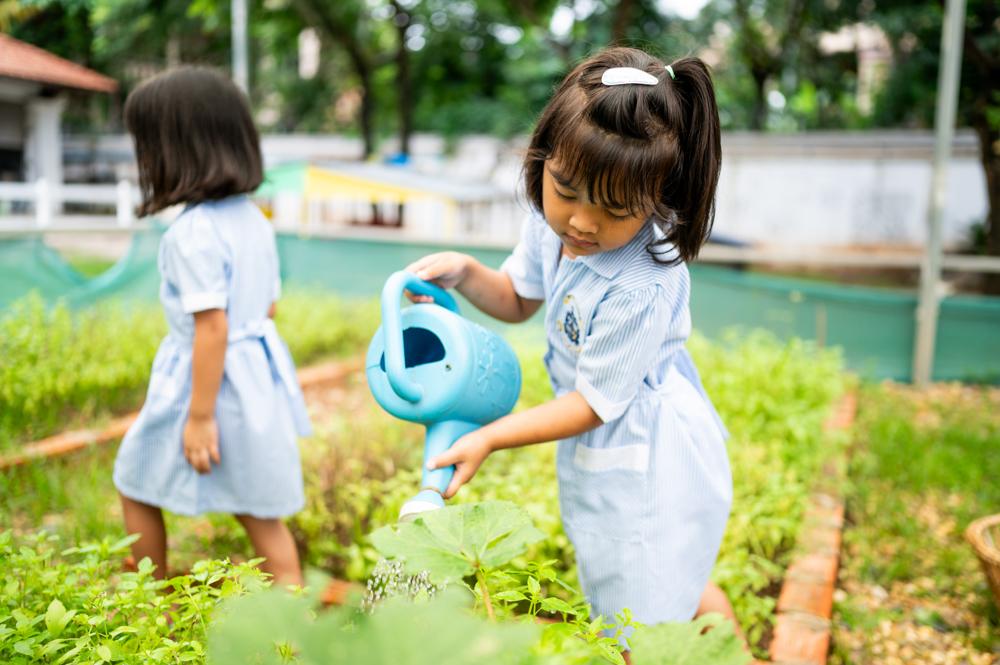Early Years Foundation Stage
The Early Years Foundation Stage (EYFS) comprises Nursery, Foundation 1 and Foundation 2.
Nursery
Our nursery school is where children first learn to feel comfortable away from mum and dad. It is where they begin to adapt to the big, wondrous world outside of the home. Supportive teachers and assistants provide a warm environment, encouraging exploration without undue pressure on our most delicate and sensitive students. We recognise and deeply value the vital role of parents in children's early learning journey. To foster a strong partnership with parents, we provide daily diaries to parents, detailing insights into their children's activities, achievements, and overall well-being at school. This regular communication ensures a consistent and nurturing approach between home and school, helping each child to thrive.
"The nursery is the natural extension up from the family, not the natural extension down from school." D.W. Winnicott
EYFS
The EFYS 2-year programme provides children with a myriad of opportunities, inside and outside, to explore seven areas of development. Play remains a very important method of learning and is enhanced by teacher involvement and interaction. Focused, teacher-directed lessons increase, and a Phonics programme is introduced. Children begin to read and write. The world has opened up!
The Importance of Play
Play underpins the Early Years Foundation Stage (EYFS) and serves as the cornerstone of learning and development for young children. Through play, children cultivate critical skills, including language, emotional awareness, creativity, and social and intellectual abilities. For most play is a natural and spontaneous activity, while some may require adult support to fully engage.
Play unfolds in both indoor and outdoor settings, where children explore and make sense of their immediate world. These environments provide opportunities to practise new ideas, experiment with skills, take risks, show imagination, and solve problems independently or collaboratively.
The role of adults in this process is vital. Educators provide time, space, and appropriate resources to enrich children's play. They observe attentively, stepping in when appropriate to model and extend language and to stimulate critical thinking, fostering deeper engagement and learning.
Aligning with the Zone of Proximal Development (ZPD) (2024), adults maximise children's potential by providing scaffolding and interactive experiences that meet their developmental stage and individual needs.
Early Years Matter 2024, Play & Learning
We value play and provide safe but challenging environments that support and extend learning and development.
Key learning objectives are pursued by integrating them into the children’s daily routines. This is known as either Continuous Provision or Enhanced Provision.
Continuous Provision
All of the different learning through play areas which are available for your children to use every day. Within each of these areas of provision, there is a core range of resources that children can use all of the time, throughout the whole year. The continuous provision enables children to return to their explorations and consolidate their learning over the course of a day or a more extended period. When children do this, they can explore what happens to their world as they grow and develop over time and make changes to explore new ideas.
Enhanced Provision
Themed resources are added to continuous provision. It’s a way of adding more challenges and broadening their learning. It allows teachers to follow up on children’s explorations and interests and to support specific objectives drawn from the seven areas of learning. For children, this is play. And when children play, they are learning at the highest level. To support these areas, other aspects of learning are scheduled into the day. Pupils visit the library and the garden on a weekly basis. PE lessons and games are also scheduled to assist with children’s physical development. The children also receive two lessons in the Lao language; although, English acquisition is our primary goal.
Why This Matters
Continuous or Enhanced Provision balances child-led exploration and teacher-guided learning opportunities. Implementation of these provisions require a suitable environment and carefully chosen resources are essential for supporting children’s development.
And when children play, they are learning at the highest level.
To support these areas, other aspects of learning are scheduled into the day. Pupils visit the library and the garden on a weekly basis. PE lessons and games are also scheduled to assist with children’s physical development. The children also receive two lessons in the Lao language; although, English acquisition is our primary goal. Additionally, to expand children's global perspective, a Mandarin lesson is included to introduce children to another widely used language.
Curriculum
We have adopted the Oxford International Curriculum for Early Years. The curriculum provides a structured framework that underpins young children’s learning, nurturing their wellbeing and building the skills necessary for a smooth transition into Primary school. Integrating high-quality, play-based learning tailored to children's needs encourages creativity, critical thinking, and independence. The curriculum adopts a spiral approach whereby key concepts and skills are revisited throughout the year, and built upon, ensuring that learning becomes more profound and complex as children develop.
The learning outcomes are achieved through a balance of child-initiated activities within well-planned continuous and enhanced provision, as well as adult-led small-group and whole-class activities. The curriculum provides focused instruction, enabling children to explore their individualized interests at their own pace. Designed to support vital areas such as language development, social-emotional learning, early numeracy, and physical development, aligning with the developmental milestones of young learners.
Areas of Learning and Development
There are seven areas of learning and development that shape our educational programmes in the EYFS. All areas are important and inter-connected.
Learning Areas:
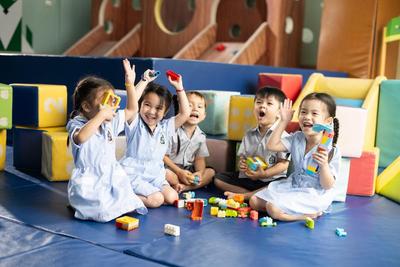
Communication and Language
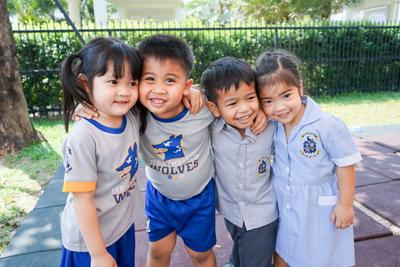
Personal, Social, and Emotional Development
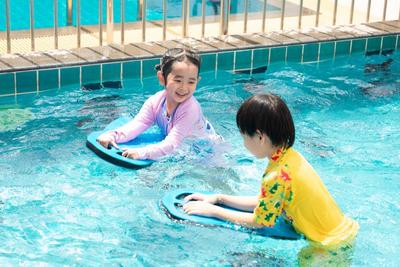
Physical Development
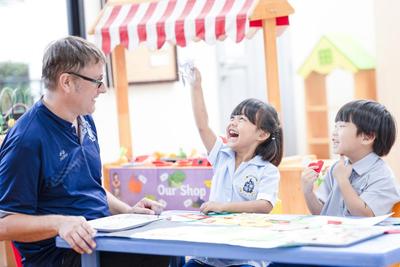
Literacy
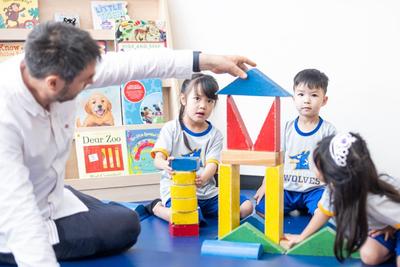
Mathematics
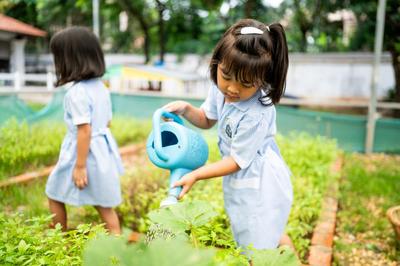
Understanding the World

Expressive arts and design
Learning Areas:
EYFS
Primary - Year 1
At HISV, we dovetail Foundation 2 with Year 1 during the first term. This means that children continue to experience a degree of continuous provision and self-choosing whilst becoming used to the more formal expectations of our primary school programme.
Staff
Our teachers are fluent English speakers and qualified to international school standards. They receive continuous training to keep abreast of developments within the field of education. We have staff trained in special educational needs to ensure that children who need individualized support receive it.
The teachers are supported by a wide variety of support staff, including teams of teaching assistants in every year group. Along with a dedicated school manager and office staff, we are all working towards the same goal of caring for and educating the children at HISV.
Inclusion
At HISV, we embrace diversity in all forms and foster a culture of respect and understanding, promoting inclusion in our curriculum and school life. Every child is unique and valuable, and we are committed to creating an inclusive environment where all children feel welcome, valued, and supported. We have qualified Special Needs staff who recognize and meet the diverse needs of all learners, ensuring that every child has the opportunity to succeed, regardless of their background or abilities.
